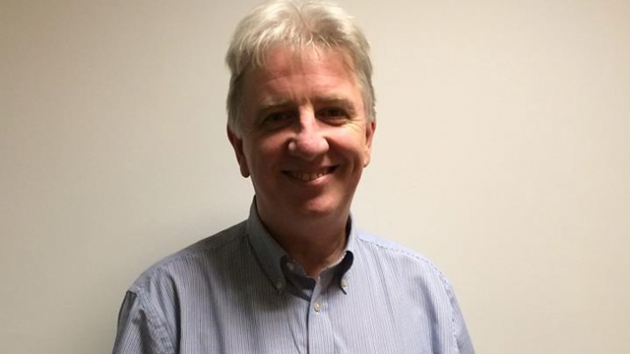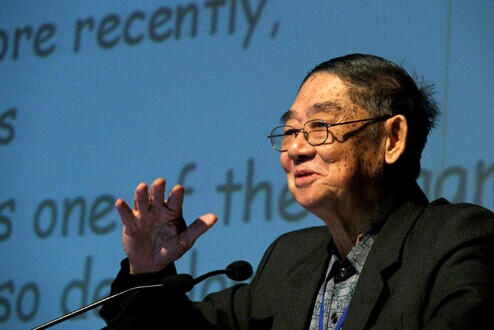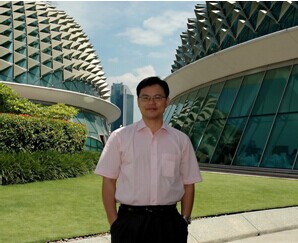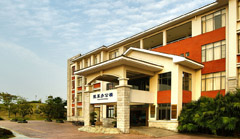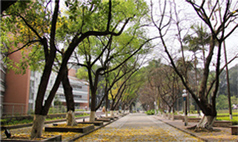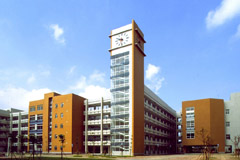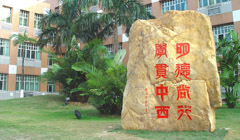Dr Nick Saville
Director Research and Validation Group Cambridge English Language Assessment
JohnH.A.LDeJong
Barry O’Sullivan Head of Assessment Research & Development,British Council
Professor Barry O’Sullivan is currently working with the British Councilin London as Head of Assessment Research & Development. His recent workincludes the design, development and validation of a placement test to be usedby the British in their centres across the world and the design, developmentand validation of a new business to business language test called Aptis.Barry is particularly interested in issues related to performance testing,test validation, test-data management and analysis and scaling and calibration;he has conducted research into factors affecting spoken performance, assessingrater behaviour, assessing speaking and writing, specific purpose assessment,benchmarking English language tests to the Common European Framework of Referencefor Languages and standard setting in professional contexts. Barry’s publications have appeared in a number of international journalsand he has presented his work at international conferences around the world.‘Issues in Business English Testing’, was published by Cambridge UniversityPress in 2006; ‘Modelling Performance in Oral Language Testing’ was publishedby Peter Lang in 2008; ‘Language Testing: Theories and Practices’ was publishedby in 2011 and ‘The Cambridge Guide to Language Assessment’ (with C. Coombe, P.Davidson, and S. Stoynoff, eds. ) was published by Cambridge University Pressin 2012. He is currently working (with C. Weir) on a major project documentinga history of language testing within the British Council.In addition to his work in thearea of language testing, Barry has taught in Ireland, England, Peru and Japan.
Liying Cheng
Professor of Teaching English as a Second/Foreign Language, Graduate Faculty
Liying Cheng has been a language teacher and language teacher educator for more than 20 years, during which time she has taught a variety of undergraduate and graduate courses at the pre-service, professional development and graduate levels at a number of universities in Canada, Hong Kong, and China. Her primary research interests are the impact of large-scale testing on instruction, the relationships between assessment and instruction, and the academic and professional acculturation of international and new immigrant students, workers, and professionals to Canada. She received the TOEFL award for outstanding dissertation in second/foreign language testing from Educational Testing Services in 1998, and TESOL Leadership Mentoring Award from TESOL in 2002. Liying had her formative and undergraduate education in China. She received M.A. in teaching English as a Foreign Language from the University of Reading in England, and Ph.D. in second/foreign language testing from the University of Hong Kong. Before she joined Queen’s University in 2000, she was a Killam Postdoctoral Fellow (1998-2000) within the Centre for Research in Applied Measurement and Evaluation (CRAME) and the TESL program at the University of Alberta. From 1996 to 1998, she was an Assistant Professor at the School of Education and Languages, Open University of Hong Kong. Since 2000 after Liying joined Queen's Faculty of Education, she has obtained research funding totalling more than one million Canadian dollars. In addition, she has conducted more than 150 conference presentations and has more than 100 publications. Her recent books are Language classroom assessment (single-authored, TESOL, Inc., 2013); English Language Assessment and the Chinese Learner (co-edited with A. Curtis, Taylor & Francis, 2010); Language Testing Reconsidered (co-edited with J. Fox et. al., University of Ottawa Press, 2007); Changing Language Teaching through Language Testing (single-authored, Cambridge University Press, 2005); and Washback in Language Testing: Research Contexts and Methods (co-edited with Y. Watanabe with A, Curtis, Lawrence Erlbaum Associates, 2004).
Liying had her formative and undergraduate education in China. She received M.A. in teaching English as a Foreign Language from the University of Reading in England, and Ph.D. in second/foreign language testing from the University of Hong Kong. Before she joined Queen’s University in 2000, she was a Killam Postdoctoral Fellow (1998-2000) within the Centre for Research in Applied Measurement and Evaluation (CRAME) and the TESL program at the University of Alberta. From 1996 to 1998, she was an Assistant Professor at the School of Education and Languages, Open University of Hong Kong.
Since 2000 after Liying joined Queen's Faculty of Education, she has obtained research funding totalling more than one million Canadian dollars. In addition, she has conducted more than 150 conference presentations and has more than 100 publications. Her recent books are Language classroom assessment (single-authored, TESOL, Inc., 2013); English Language Assessment and the Chinese Learner (co-edited with A. Curtis, Taylor & Francis, 2010); Language Testing Reconsidered (co-edited with J. Fox et. al., University of Ottawa Press, 2007); Changing Language Teaching through Language Testing (single-authored, Cambridge University Press, 2005); and Washback in Language Testing: Research Contexts and Methods (co-edited with Y. Watanabe with A, Curtis, Lawrence Erlbaum Associates, 2004).
Professor GUI Shichun
Professor Gui Shichun, a well-known figure in the academic field in China, is credited with being the first scholar who introduced applied linguistics studies intoChina. He has established several other records of "the first in China," hence has long been called "the brave pioneering explorer" in his field in his country. For example, he established the first applied linguistics (AL) MA program in 1978, the first AL certificate program in 1980, and the first AL Ph.D. program in 1986. He also established and held the first national symposium on applied linguistics and English teaching in 1980 and the first international symposium on foreign language teaching in China in 1985. Further, in 1978, he also started advocating the application of international mainstream language testing theories and established the nation-wide English Proficiency Test (EPT) in China. According to Li (Dong & Wang, 2001), the establishment of EPT is significant in at least three aspects: First, it was the first time in Chinese testing history that language testing was regarded as an autonomous area of scientific enquiry; second, the test results of the EPT were soon admitted and accepted by a certain range of institutions in the United States and Canada; third, through the establishment of this test, a group of testing specialists, who later became major forces behind other new tests, were trained. Generally regarded as the founding father of language testing in China, he is also the advisor of the National College English Test committee. Over the years, he has supervised many MA students as well as Ph.D. students who are now very active in the field of language testing and applied linguistics.
Professor LIU Jianda
Liu Jianda, Professor, BA(JXNU), MA(GIFL), PhD (CityU)
Liying Cheng has been a language teacher and language teacher educator for more than 20 years, during which time she has taught a variety of undergraduate and graduate courses at the pre-service, professional development and graduate levels at a number of universities in Canada, Hong Kong, and China. Her primary research interests are the impact of large-scale testing on instruction, the relationships between assessment and instruction, and the academic and professional acculturation of international and new immigrant students, workers, and professionals to Canada. She received the TOEFL award for outstanding dissertation in second/foreign language testing from Educational Testing Services in 1998, and TESOL Leadership Mentoring Award from TESOL in 2002. Liying had her formative and undergraduate education in China. She received M.A. in teaching English as a Foreign Language from the University of Reading in England, and Ph.D. in second/foreign language testing from the University of Hong Kong. Before she joined Queen’s University in 2000, she was a Killam Postdoctoral Fellow (1998-2000) within the Centre for Research in Applied Measurement and Evaluation (CRAME) and the TESL program at the University of Alberta. From 1996 to 1998, she was an Assistant Professor at the School of Education and Languages, Open University of Hong Kong. Since 2000 after Liying joined Queen's Faculty of Education, she has obtained research funding totalling more than one million Canadian dollars. In addition, she has conducted more than 150 conference presentations and has more than 100 publications. Her recent books are Language classroom assessment (single-authored, TESOL, Inc., 2013); English Language Assessment and the Chinese Learner (co-edited with A. Curtis, Taylor & Francis, 2010); Language Testing Reconsidered (co-edited with J. Fox et. al., University of Ottawa Press, 2007); Changing Language Teaching through Language Testing (single-authored, Cambridge University Press, 2005); and Washback in Language Testing: Research Contexts and Methods (co-edited with Y. Watanabe with A, Curtis, Lawrence Erlbaum Associates, 2004).
|

